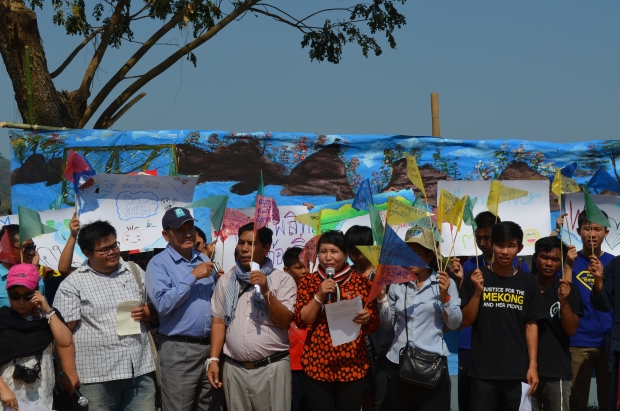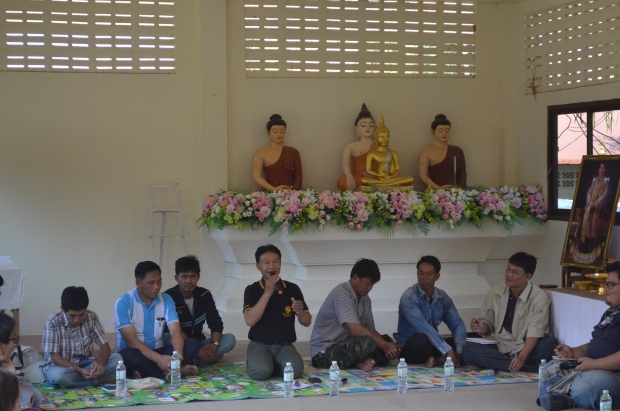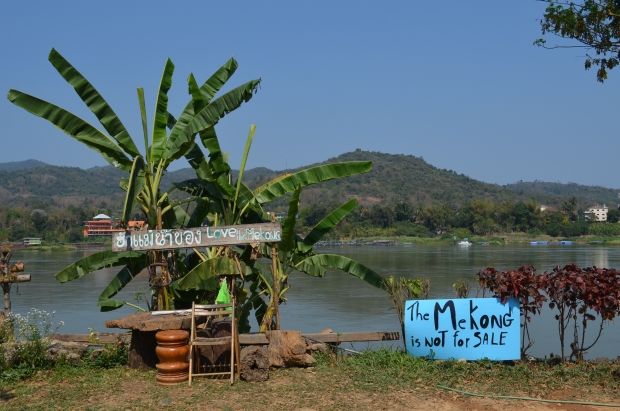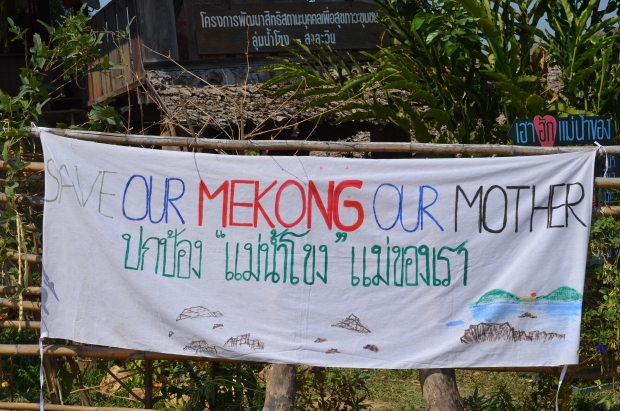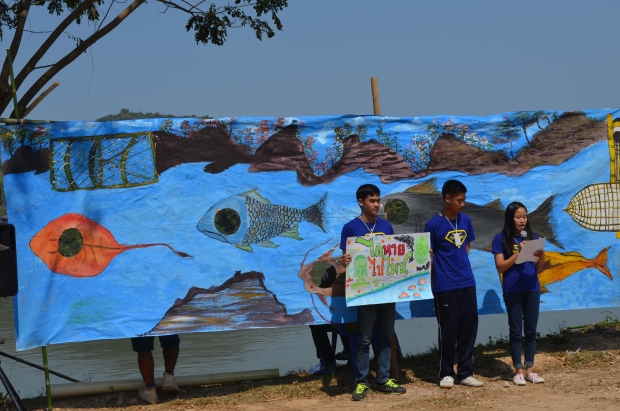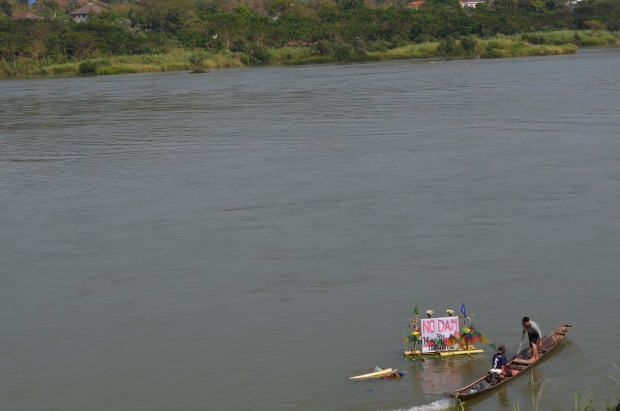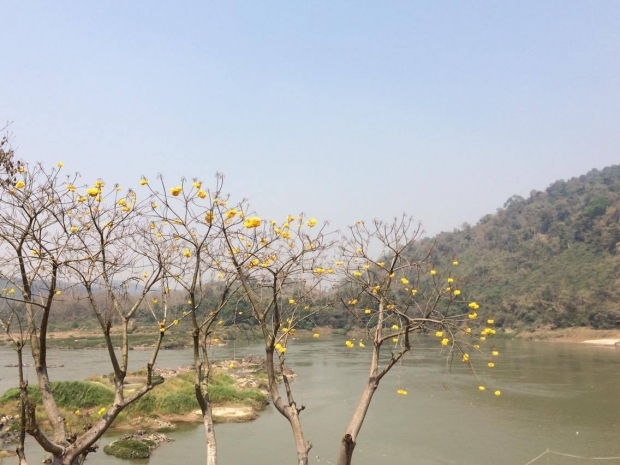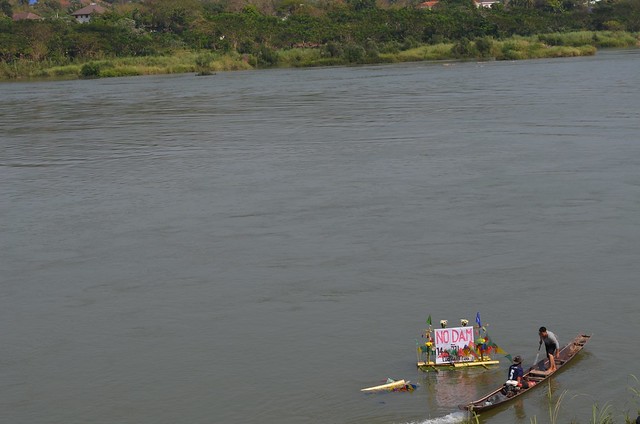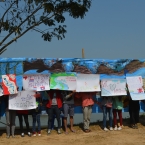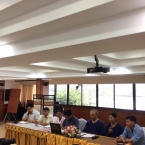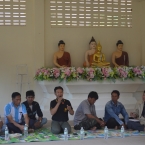A Shared Commitment to the Future of the Mekong River
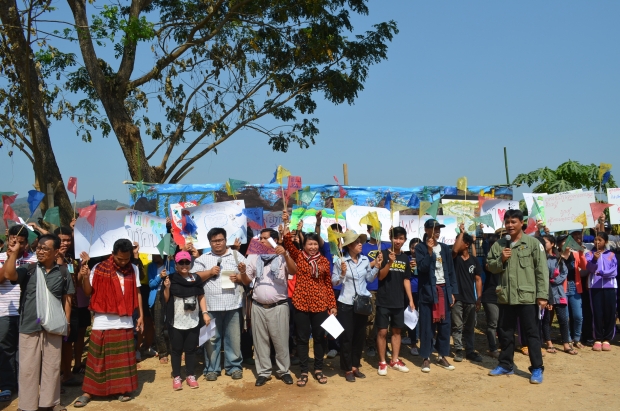
“On the International Day of Action for Rivers, we, the Save the Mekong Coalition, along with civil society and community partners from Thailand, Cambodia and Vietnam, make this statement to express our gratitude to the Mekong River and the way of life she supports […] We recognize the efforts of Mekong communities who are working to protect and preserve the unique ecosystems and resources of the river…[and] we stand in solidarity with communities along the Mekong River. We re-affirm our commitment to work together across the basin, prioritizing the voices of Mekong communities in decision-making over the future of the Mekong River for current and future generations.” – Excerpt from the Chiang Khong Declaration, March 14, 2017
Standing under the scorching sun along the banks of the Mekong River, more than one hundred people gathered on March 14 to celebrate the International Day of Action for Rivers. The Chiang Khong Declaration was read aloud in Thai, Khmer and Vietnamese, linking the voices of communities and civil society across the Mekong River basin, and reaffirming a commitment to work together to protect the Mekong River and demand justice for Mekong communities.
At a public forum that morning, community representatives from Thailand and Cambodia shared their knowledge of the Mekong River and expressed concerns regarding planned projects that threaten the river. These projects include dams under construction on the river's mainstream and its tributaries and plans to blast iconic river rapids in northern Thailand to make navigation pathways.
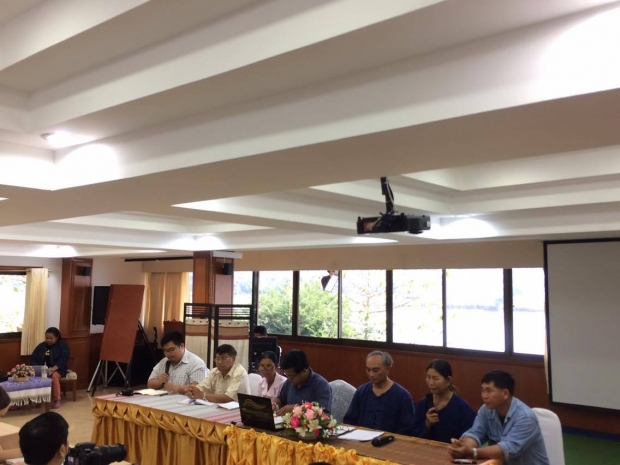
No one knows the Mekong River better than the communities that live along it. For generations, their way of life has been intertwined with the river: fishermen and women, farmers, boat drivers and villagers. But in recent years the river has changed, becoming more unpredictable and less reliable for the communities that depend on it. The water level close to Chiang Khong in northern Thailand, where the International Day of Action for Rivers activities were held, fluctuates without warning and can change overnight. Catching fish – enough to eat and sell – is no longer guaranteed. Villagers from Huai Leuk – the last village along the Mekong River in Thailand before it passes into Laos – noted that fishing has dropped by more than 70% in recent years.
Fishermen in the area previously earned 3,000 Thai Baht, the equivalent of roughly $90 USD, each day from fish catch. This has changed. Fishermen have had to adapt, not only to the limited fish stocks, but to different fishing methods. Now they are only able to fish during a few months of the year and must spend money on different equipment, such as fishing rods, which were never used in the past.
Communities in Cambodia share many of the same concerns. On the Tonle Sap Lake, known as the heart of Cambodia, communities live on floating villages; their main income is generated from fish. Compared to previous years, villagers shared that the number of fish is now much lower. In Kratie, along the mainstream of the Mekong River, locals have noticed a visible change in water quality and similiar unpredictability in fluctuation of water levels: “Some seasons we have a lot of water and sometimes there is no water,” commented one villager.
The changes to the Mekong River will be compounded by plans to build further dams along the lower Mekong mainstream, following in the wake of the Xayaburi and Don Sahong dams, which are already under construction. The Pak Beng Dam, the third dam planned on the Mekong River mainstream, began the regional consultation process in December. However, communities in Thailand, Cambodia and Vietnam have received little information regarding the project, which will be built roughly 90 kilometers downstream from Huai Leuk Village. “We are very concerned about the Pak Beng Dam,” said the village chief. “We are the last village along the Mekong River in northern Thailand, but will be the first affected by the dam.”
Community members from Thailand and Cambodia also voiced concerns about the limited information shared by their governments about projects on the Mekong River and the apparent disregard for the impacts on their people. The current process for review and decision-making on proposed projects on the Mekong mainstream provides limited space for community participation. To date, it has failed to take into consideration the concerns of local people, or those of neighboring governments formally raised through the Prior Consultation Process. Developers have continued to ignore the transboundary implications of hydropower development on the Mekong River, along with the cumulative impacts as each new project has moved forward.
The Save the Mekong Coalition has addressed concerns to the Mekong River Commission, Mekong governments and international donors regarding the rush to build more dams on the Mekong River despite unresolved questions over the transboundary and cumulative impacts of projects already under construction and the breakdown in shared regional decision-making. The Coalition has called for a halt to further decision-making over Mekong mainstream dams until decisions can be informed by and based upon meaningful consultation, particularly with local project-affected communities, and sound basin-wide studies.
While the Mekong Forum was taking place, youth groups from Thailand held their own activities at the Mekong School for Local Knowledge in Chiang Khong, where they learned more about the importance of the Mekong River and discussed issues facing the river and local communities. When the groups joined together in the afternoon, they performed short plays, dances and readings telling stories of the Mekong River.
Communities in Thailand and Cambodia have experienced similar issues, and their shared concerns regarding dam construction on the river underlines the interconnection of the river and her people. The fight to protect and preserve the Mekong River is not the fight of one community or even one country – it is a struggle shared by people throughout Mekong River basin.
The Mekong River faces increased vulnerability from the construction of dams, rapids blasting, water diversions and climate change. However, in coming together for the International Day of Action for Rivers, local communities – along with Save the Mekong Coalition members and allies from Thailand, Cambodia, Vietnam and elsewhere – demonstrated the solidarity and resilience of Mekong people fighting for their rivers, their livelihoods and their natural heritage.

